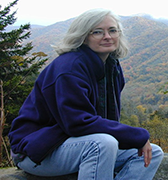Ideas to Action and Action into Ideas
Critical Reflection as the connector between students’ experiential learning and critical thinking
On January 17, 2014, Ideas to Action hosted an interactive session with Patti Clayton, Ph.D. Participants had the opportunity to expand and deepen their teaching in relation to experiential learning, community-based learning (CBL) and critical thinking.
>This article by Sarah Ash and Patti Clayton was recommended as advanced reading for workshop attendees. Additional materials, including reading lists, worksheets, and other articles were distributed at the actual workshop. Download the PDF.

As the part of the process that generates, deepens, and documents learning, critical reflection is key to all forms of experiential education, including community-based learning (CBL). Being critical thinkers about our experiences deepens our learning. It is also a counter-normative way for many of us to teach and to learn, so it is both challenging to implement and potentially transformative. In this interactive workshop participants considered the meaning and role of critical reflection in community-based learning (CBL) and other forms of experiential learning and examined a research-grounded model for designing critical reflection in light of learning goals: the DEAL (Describe, Examine and Articulate Learning) Model. Participants were provided with an advance article on Patti's work on critical reflection, with tools for integrating critical reflection and assessment, and were invited to apply these concepts to their own course and other instructional settings.
Patti Clayton, Ph.D. has been working in the areas of service learning, engaged scholarship, and faculty development for over 15 years. Among her credentials, Patti is a board member of the International Association for Research on Service-Learning and Community Engagement and a co-editor of the Associations’ annual Conference Proceedings. She is also an associate editor of the Michigan Journal of Community Service Learning, and she serves on the editorial board for the Journal of Applied Learning in Higher Education. She received her Ph.D. and M.S. from the Curriculum in Ecology at UNC-Chapel Hill.
See a select list of her research and publications here.
She has consulted for faculty development, student leadership development, student affairs support, and service-learning curriculum design. Additional resources: http://curricularengagement.com
